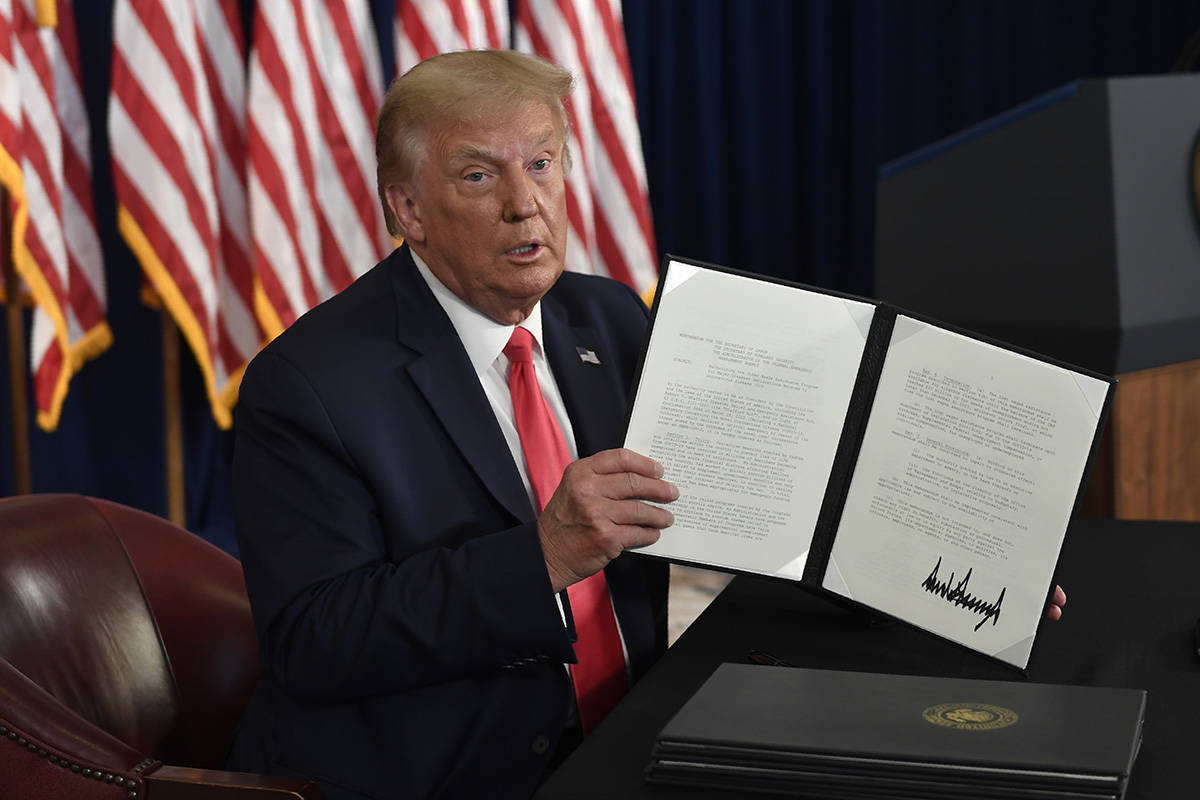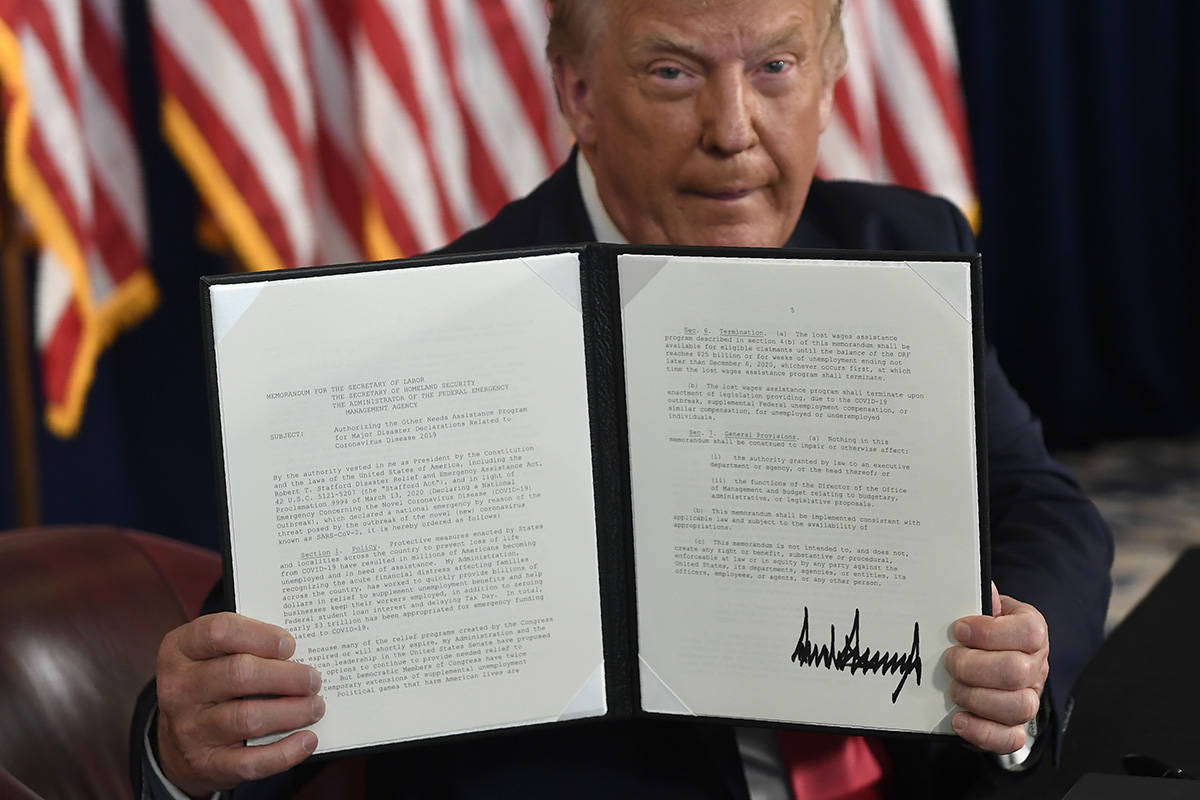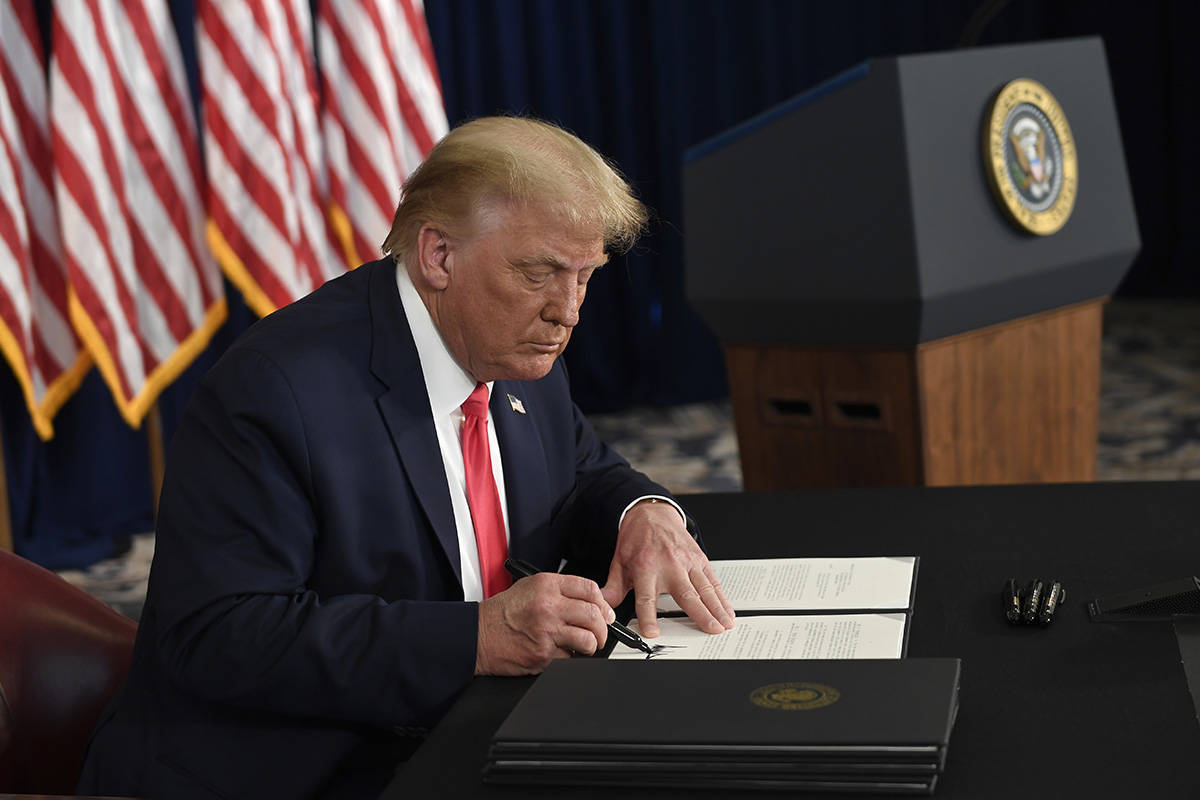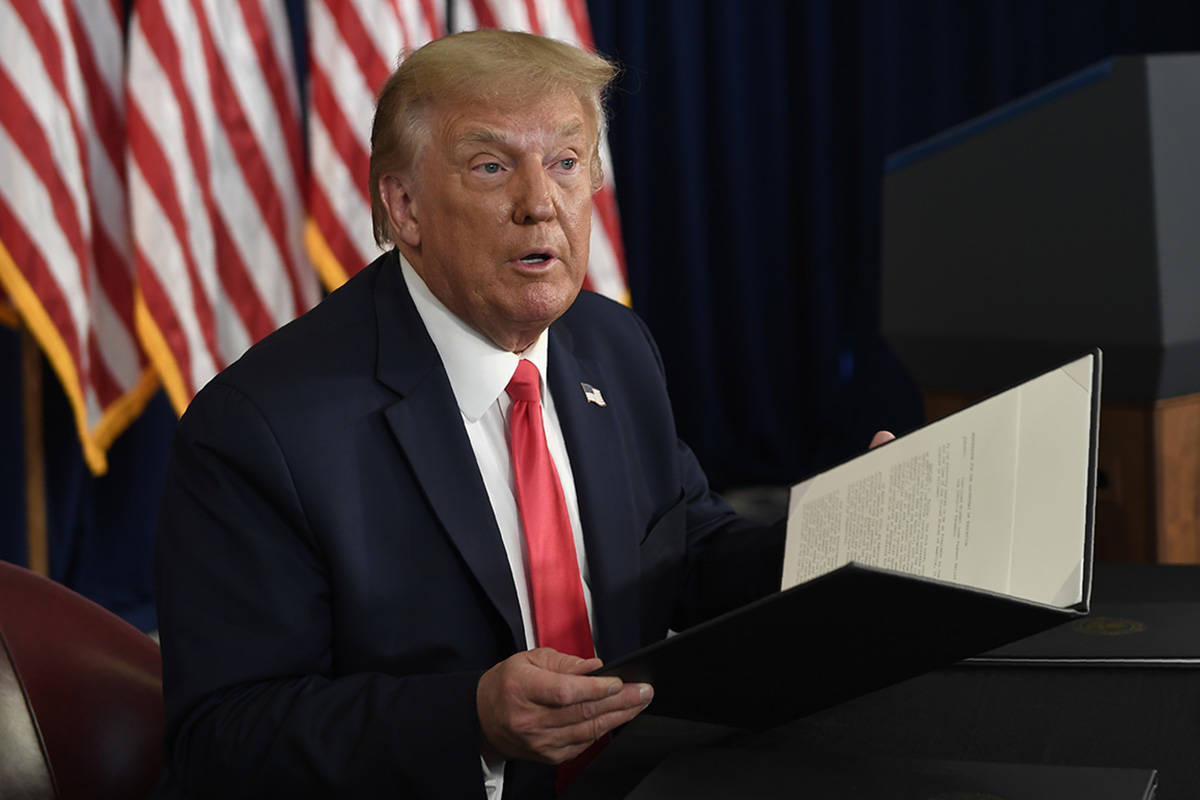White House, Democrats blame each other for virus relief impasse
WASHINGTON — The White House on Monday stood behind four executive orders President Donald Trump signed Saturday to provide economic relief during the coronavirus slump, even as the administration and Democratic leaders faulted the other side for not negotiating a package with greater impact.
Maya MacGuineas, president of the Committee for a Responsible Federal Budget, told the Review-Journal that Trump’s action over the weekend creates uncertainty.
“And given that certainty is like the cheapest, most effective form of stimulus or stabilization, it’s far less effective than the policy measures we need right now,” she said.
On Monday, Trump tweeted that the four executive orders, which would fund enhanced unemployment benefits, suspend payroll taxes, defer student loan payments and prevent foreclosures and evictions, had made House Speaker Nancy Pelosi and Senate Minority Leader Chuck Schumer “want to meet to make a deal.”
So now Schumer and Pelosi want to meet to make a deal. Amazing how it all works, isn’t it. Where have they been for the last 4 weeks when they were “hardliners”, and only wanted BAILOUT MONEY for Democrat run states and cities that are failing badly? They know my phone number!
— Donald J. Trump (@realDonaldTrump) August 10, 2020
It is not clear how the executive orders would work. The order to fund $400 in extra weekly unemployment benefits, a reduction from the $600 per week supplemental payments that ended July 31, would require states to pay 25 percent of the benefit.
To add to the confusion, Trump told reporters Monday that he had just met with governors.
“Depending on the state, we have a right to do what we want to do,” Trump said, adding that this includes terminating the 25 percent requirement.
Nevada Gov. Steve Sisolak said Monday that he was “disappointed that the federal government could not come together to pass an extension of the fully federally funded unemployment benefits, at a time when state and local governments are facing severe budget shortfalls and many workers are jobless through no fault of their own.
“The president needs to work with Congress to pass a full aid package that helps states fight the virus and protect residents,” Sisolak said.
White House press secretary Kayleigh McEnany told reporters the administration would work around the clock to prevent a delay in the enhanced uenemployment benefits. She also said that if there is a delay, “it’s important to note where the delay and the responsibility rests, and it’s with Nancy Pelosi and Chuck Schumer,” who were offered a temporary $600 extension but refused it.
A second executive order drawing scrutiny would defer the collection of payroll taxes. At the end of the year, workers would be liable for paying the payroll taxes that were withheld unless Washington enacts a measure that releases earners from paying them. This puts employers in the difficult position of choosing whether to withhold a tax for which workers may owe money at the end of the year.
If the order stands, some workers will think, “I thought I was getting a tax cut. What you really did was give me a loan,” said University of Virginia Law School professor Saikrishna Prakash.
As he signed the executive orders Saturday, Trump pledged, “If victorious on Nov. 3, I plan to forgive these taxes and make permanent cuts to the payroll tax. I’m going to make them all permanent.”
On MSNBC’s “Morning Joe,” Schumer countered that Trump “just makes things up,” and he dismissed the four orders as “laughable” as well as “unworkable, narrow and scanty.” He later argued on the Senate floor that a compromise bill was the only way Washington could make meaningful changes.
For his part, Senate Majority Leader Mitch McConnell faulted Democrats for pushing a “$3 trillion wish list” brimming with political spoils. Republicans have offered a $1 trillion package.
MacGuineas said Congress should be focused on people in need and an ailing economy.
“Yet our lawmakers are so much more focused on who has the upper hand and getting the best of each other in a negotiation,” she said. “That just doesn’t do a thing for anyone who’s sick or who has lost their job.”
Contact Debra J. Saunders at dsaunders @reviewjournal.com or at 202-662-7391. Follow @DebraJSaunders on Twitter. Staff Writer Colton Lochhead contributed to this report.














































